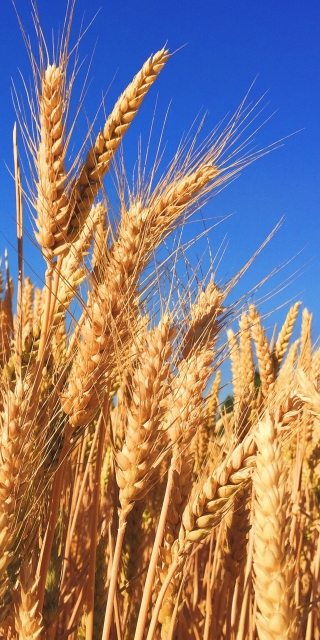|
WP2 - Effects of controlled growing environment on the composition of
Bread wheat, Emmer wheat, Spelt wheat and Tritordeum
Grain composition is affected by the actual growth conditions such as
soil, climate related stress factors (heat, water, drought), disease
attacks and use of fertilizers and pesticides. These factors have an
influence on the contents and composition of bioactive components, such
as betaine, B vitamins, phenolics as well as specific proteins related
to crop protection (natural plant own pesticides).
Ideally, studies addressing the effects of food processing on
composition and the effects of known composition on gastrointestinal
wellbeing, should compare grain samples that have been grown under
comparable conditions and harvested and processed to whole grain flour
subsequently. However, for practical reasons this is not realistic
and we have to work with grains that are available commercially in
sufficient amounts to produce large quantities of bread required for the
studies.
Emmer and Spelt are sometimes grown under organic conditions or
traditional low input systems. Bread Wheats are usually grown under
conventional high input systems. The Bread Wheat, Emmer and Spelt that
we will purchase in the market for use in the studies will be obtained
from different regions and different farmers, which will have
significant effects on composition. For inclusion in the studies, all
grains will be controlled for purity to avoid cross contamination with
kernels from other grains as often may happen in the field or during
transport and processing.
Thus, study is required to underpin to what extent differences in the
composition of the purchased grains, as are being used in our clinical
studies, are related to agronomy/environment or genetics. One way to
check this is taking seeds from the purchased grain lot and sow these in
highly controlled field plots allowing for growth under identical
environmental and agronomic conditions. In the proposed field trials we
aim to 3 emmer, 5 spelt and 5 bread wheat, and in 2 locations in Spain 3
tritordeum, 3 bread wheat and 3 durum wheat lines under conventional
conditions. Since a single sample set will not allow us to define the
variation between the effects of environment, genotype or G x E
interactions, we will replicate the trials for at least two years.
Obtained micro harvests will be milled and subsequently analyzed for
composition, allowing a direct comparison with the purchased bulk seeds
composition.
The controlled field trials will be performed at different sites:
Rothamsted Research in UK, Principle Investigator (PI) Prof Peter
Shewry, Wageningen University & Research-site Lelystad, PI. Ing. Ruud
Timmer, Netherlands, Agrasys, PI. Dr Pauil Lazzeri, Barcelona and
Cordoba, Spain. |
